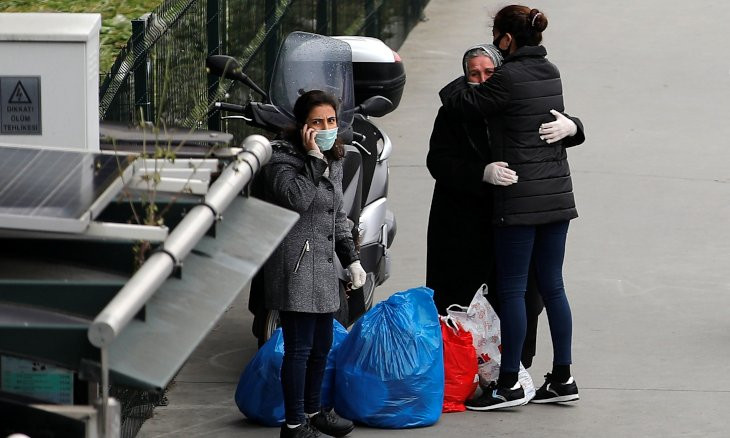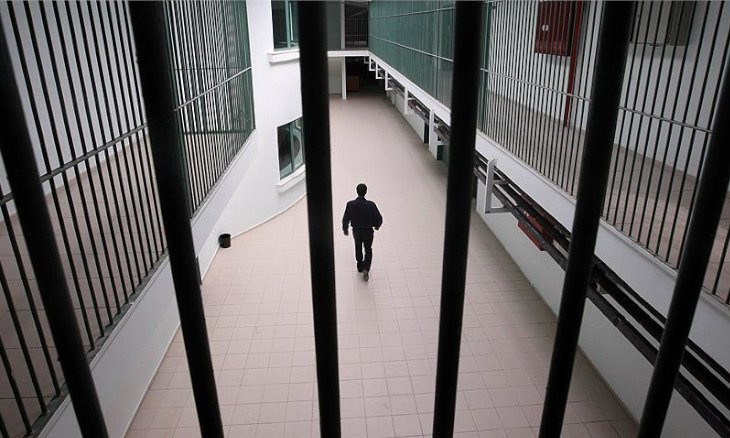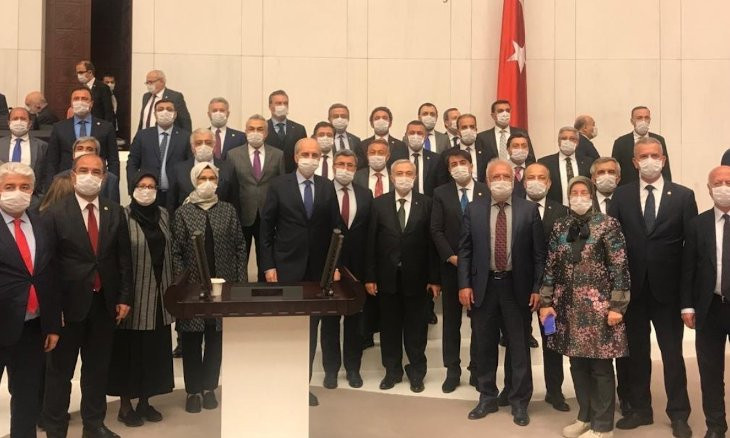Turkish parliament closes for six weeks amid virus threat
The parliament has gone into recess for six weeks as part efforts to slow the spread of the coronavirus. The recess comes despite the objection of the main opposition CHP and HDP, which demand greater scrutiny over how the Covid-19 crisis is being handled.
Duvar English
Turkey's parliament has suspended sitting for six weeks as part of the government’s efforts to slow the spread of coronavirus.
The parliament is expected to open its doors on June 2 following the Ramadan Feast (Sugar Feast).
Parliament Speaker Mustafa Şentop said on April 17 that the parliament will convene for a special session as part of April 23 National Sovereignty and Children’s Day. The deputies will pay attention to the rules of social distancing and will be required to wear masks during this special session, Şentop said.
CHP, HDP criticize closure decision
The suspension of the parliament comes despite the objection of the main opposition Republican People's Party (CHP) and Peoples' Democratic Party (HDP).
"Why is the parliament, which was even open during the War of Independence [1919-1923], being closed? We do not find this right," CHP leader Kemal Kılıçdaroğlu said during an interview with Murat Sabuncu from T24 on April 15, adding that the closure decision was a result of "a one-man rule."
CHP spokesperson Faik Öztrak said that Turkey is going through a period that "needs the parliament the most." "Our parliament is working having taken precautions to the maximum extent possible," he said, referring to the deputies' wearing protective masks and maintaining a proper distance from each other.
"Let our parliament work. Let it work on the people's problems and enact laws that will bring a solution to them," he said on April 17.
HDP spokesperson Ebrü Günay similarly said that the parliament needs to stay open, demanding greater scrutiny over how the Covid-19 crisis is being handled.
"The parliament needs to keep working to address the problems of workers and the poor. It should convene as soon as possible and look for ways on how to manage this process in a healthy way," Günay said during a press conference on April 17.
The parliament's recess came after the legislation of an omnibus bill early on April 16 which includes various measures to mitigate the pandemic's impact on economic and social life.
One of the measures in the newly ratified bill bans layoffs but also gives employers the right to put their employees on unpaid leave during the coronavirus pandemic.
 Gov't legalizes unpaid leave amid coronavirus outbreak
Gov't legalizes unpaid leave amid coronavirus outbreakPrior to this omnibus bill, the parliament was busy with discussing and passing a controversial prisoner bill which paved the way for the release of tens of thousands of prisoners to stem the spread of the virus.
The bill was supported by the ruling Justice and Development Party (AKP) and its ally Nationalist Movement Party (MHP).
The opposition and human rights groups slam the new law for its exclusion of those jailed on terrorism charges, mainly journalists, writers and politicians.
The main opposition Republican People’s Party (CHP) announced on April 14 that the party will challenge the law in Turkey’s Constitutional Court.
 Turkey begins releasing prisoners as part of measures against coronavirus
Turkey begins releasing prisoners as part of measures against coronavirus Main opposition CHP to take prisoner release law to Constitutional Court
Main opposition CHP to take prisoner release law to Constitutional Court Turkish parliament passes bill to release thousands from prison, leaves journalists, politicians out
Turkish parliament passes bill to release thousands from prison, leaves journalists, politicians out
